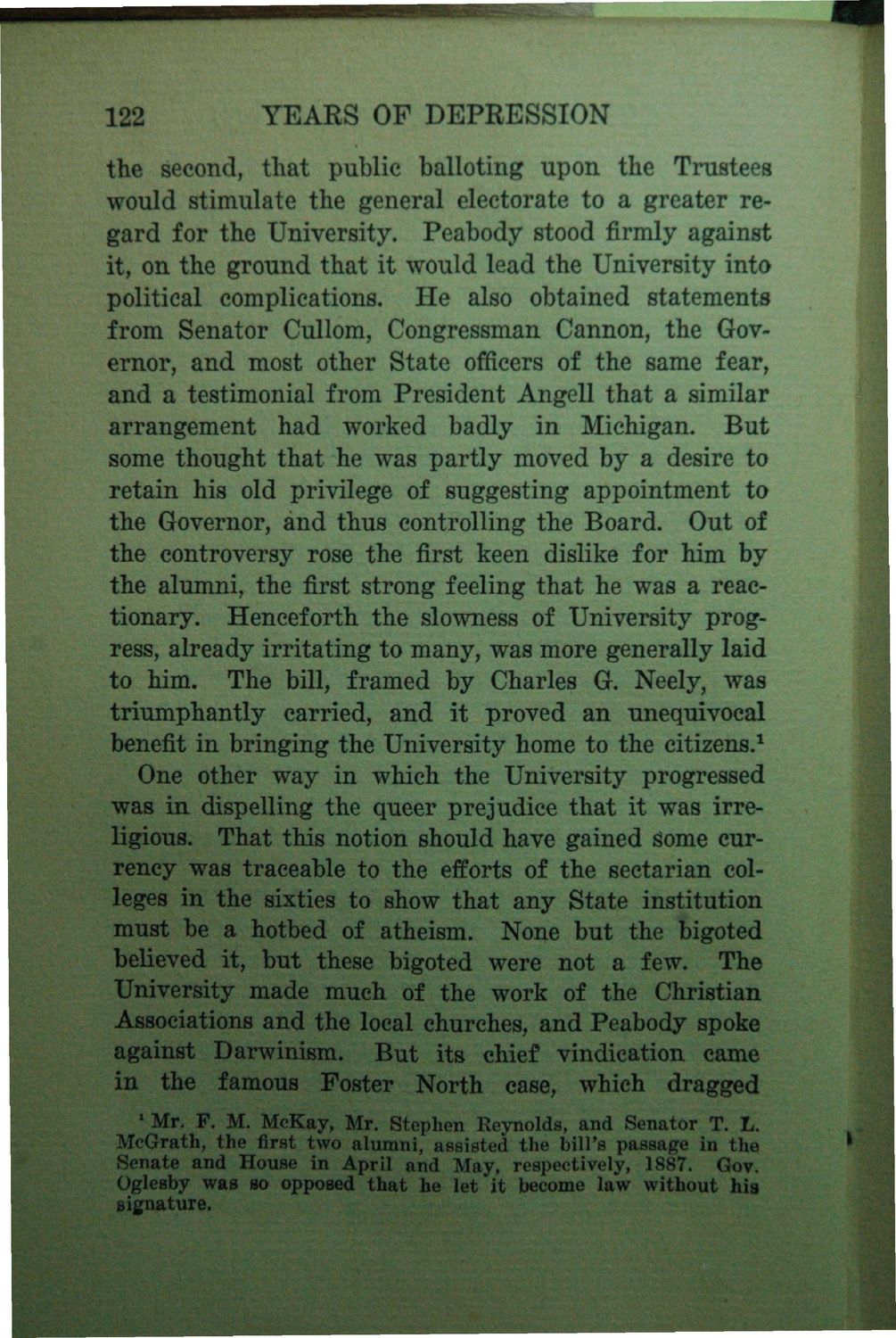| |
| |
Caption: Book - History of the University (Nevins)
This is a reduced-resolution page image for fast online browsing.

EXTRACTED TEXT FROM PAGE:
122 YEARS OF DEPRESSION the second, that public balloting upon the Trustees would stimulate the general electorate to a greater regard for the University. Peabody stood firmly against it, on the ground that it would lead the University into political complications. He also obtained statements from Senator Cullom, Congressman Cannon, the Governor, and most other State officers of the same fear, and a testimonial from President Angell that a similar arrangement had worked badly in Michigan. But some thought that he was partly moved by a desire to retain his old privilege of suggesting appointment to the Governor, and thus controlling the Board. Out of the controversy rose the first keen dislike for him by the alumni, the first strong feeling that he was a reactionary. Henceforth the slowness of University progress, already irritating to many, was more generally laid to him. The bill, framed by Charles G. Neely, was triumphantly carried, and it proved an unequivocal benefit in bringing the University home to the citizens.1 One other way in which the University progressed was in dispelling the queer prejudice that it was irreligious. That this notion should have gained Some currency was traceable to the efforts of the sectarian colleges in the sixties to show that any State institution must be a hotbed of atheism. None but the bigoted believed it, but these bigoted were not a few. The University made much of the work of the Christian Associations and the local churches, and Peabody spoke against Darwinism. But its chief vindication came in the famous Foster North case, which dragged Mr. F. M. McKay, Mr. Stephen Reynolds, and Senator T. L. McGrath, the first two alumni, assisted the bill's passage in the Senate and House in April and May, respectively, 1887. Gov. Oglesby was «o opposed that he let it become law without his signature, 1
| |